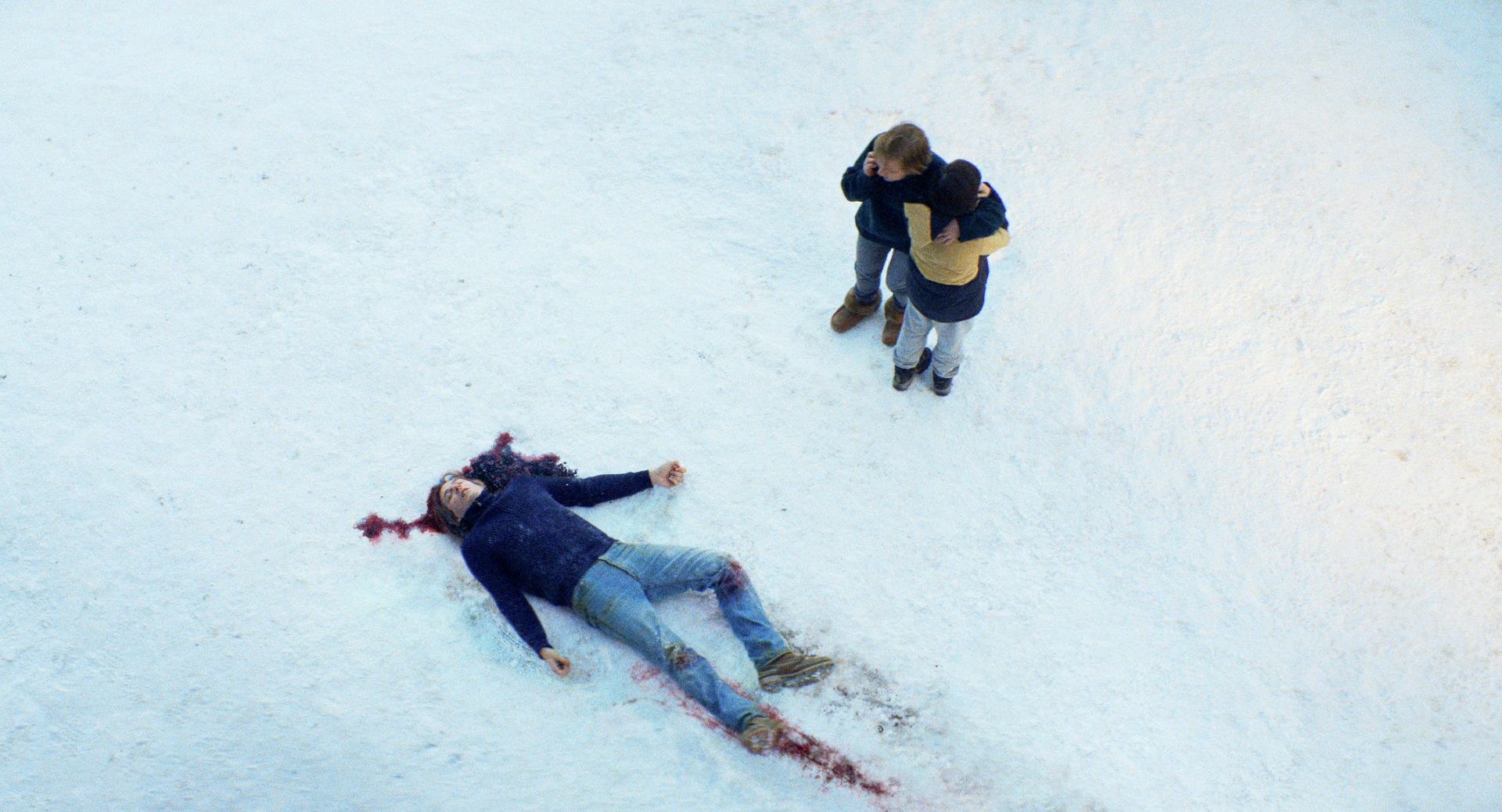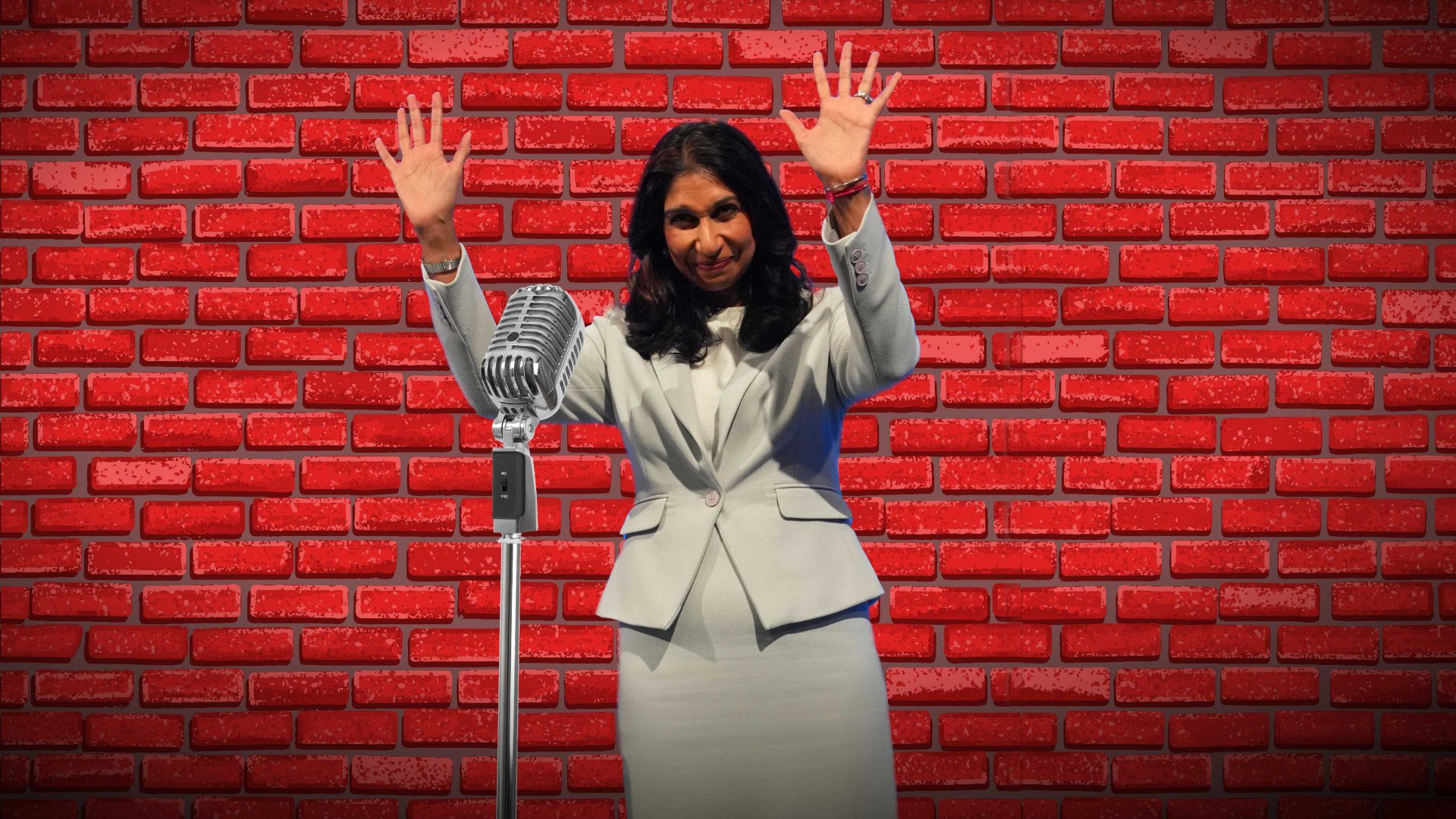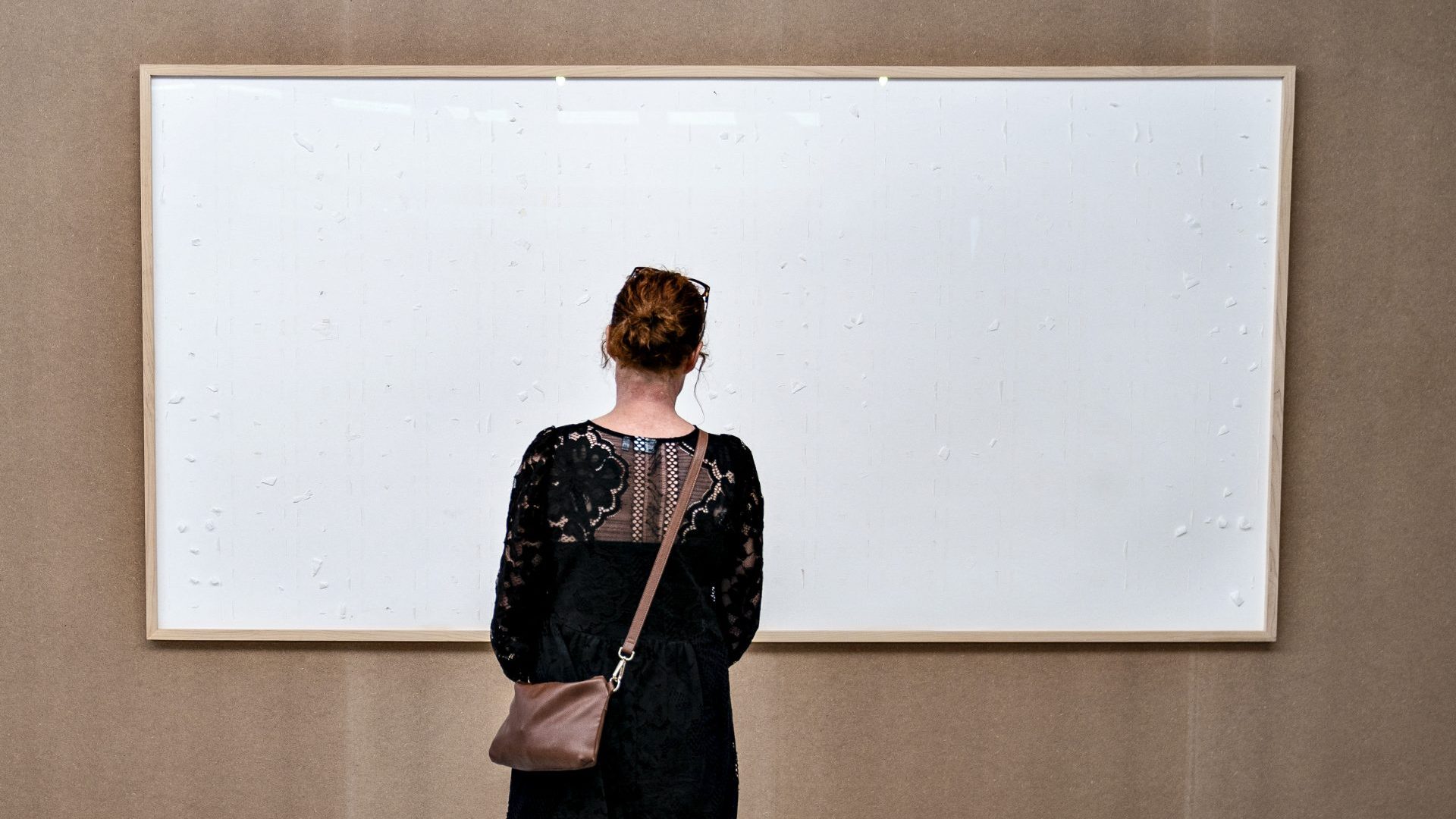Speaking in your second or third language can be exhausting. The barrage of questions French director Justine Triet has been fielding over the last few weeks as her film opens in America, Germany and across the UK has taken its toll on the Palme d’Or winner, who is now challenging for Oscars. She just needs to stop for a moment.
After a rest in her London hotel room, she’s relieved when I tell her we can talk in French. It’s not something I’d usually mention but language plays such an important role in her latest film Anatomy of a Fall that it feels relevant to make a point of it. “We are different people in other tongues,” remarks Triet. “And it is easier to lie in another language.”
The film’s Cannes triumph last May has propelled the previously little-known Triet to the front line of European film-makers, the victory making her only the third woman to ever win the prize and the excellence of the movie making it a hot favourite in many awards categories. There are suggestions that it could even “do a Parasite” and go all the way to Best Picture at the Oscars. “I have to admit it,” she says, with a puff of the cheeks. “Winning the Palme d’Or has totally changed my life.”
Anatomy of a Fall (Anatomie d’une Chute) has all the classic traits of a courtroom drama but it’s domestic drama in disguise, a murder trial that’s really a canvas for discussing, in bracingly intimate and public detail, the dynamics of a couple’s marriage. Did a man, Samuel, fall from the third-floor attic window of his Alpine chalet home, did he throw himself off and commit suicide, or was he pushed by the only person in the house at the time, his famous novelist wife, Sandra?
They say we never really know what goes on behind closed doors in a relationship. Nor open windows, apparently. The film becomes an intensely involving thriller with us, the audience, testing our own skills. But which skills?
We are variously required to serve as detectives, prosecutors, judge and jury, psychoanalyst, marriage counsellor, parent, wife, husband, and child protection agent. This is not a film you can just sit back and let pass you by. You lean into it, pay keen attention to every gesture, every look, every inflection of every word. I’ve seen it twice, scanning every inch of the screen for clues.
Which is why language is so important. Sandra (played by the incredible Sandra Hüller) is a writer born in Germany, who has lived in London but is now in a remote mountain village in France, somewhere near Grenoble. She seems comfortable speaking in English, but during the court case following her husband’s fall, is required to defend herself in French. Interestingly, she doesn’t speak any German in the film at all, the mother tongue of both the character Sandra and the actor Sandra – both speak excellent English, by the way.
When I speak to Hüller at the film’s UK premiere (Oscar nominations surely beckon for her), she mentions her slight regret that, after dubbing her own performance into German, the version of the film that’s being released in Germany doesn’t have all the nuances and confusion of different languages, of a woman flitting between tongues and whether she’s doing it to hide something.
For Triet, the character’s linguistic ability was a key factor. Sandra speaks English to her son, who only speaks French back to her, and English with her French-speaking husband, to give them some middle ground in the power play, a space where neither of them uses their mother tongue – perhaps it makes arguing a more considered process? Or means that some emotions are never really truly expressed, at least not in words…
Anatomy of a Fall is already a big hit in France, one of the more commercially successful Palme d’Or winners of recent years, even charting above Oppenheimer and just behind Barbie and holding its own for weeks against both over the summer. There has been some outcry that the film has not been chosen by France to represent it in the International Film category at the 2024 Oscars, that honour instead going to Pot-au-Feu (now known as The Taste of Things), a pretty but stodgy French period foodie film starring Juliette Binoche as a consumptive cook.
Triet and her team have put that setback behind them and the film seems to be heading for wider recognition without the official French stamp of approval. You can see many reasons why – one of them being that quite a lot of the movie is in English, spoken by Hüller in her dynamite performance (you may recognise her from the German comedy hit Toni Erdmann and she’s also brilliant in Jonathan Glazer’s upcoming Auschwitz film The Zone of Interest – which has, as it happens, been put forward for the Oscars’ International Film category – by the UK).
What makes the performance so compelling is the sheer range of modes engaged as this character finds herself under the forensic examination of the law. She’s charming, defensive, snarling, bitter, honest, crying, challenging, furious – often all at once. You’ll veer wildly in your opinion of her the more you watch.
“Some say she’s a monster,” says Triet. “Others think she’s a heroine.” Apparently, according to the director, opinion about Sandra the character varies from country to country.
I wonder what that says about the psyche of each nation, about its attitude to women and relationships. “I wonder, too,” laughs Triet. “I have no answers. I wasn’t expecting it at all.”
Triet is tall, with a mane of auburn hair swept back from a striking, pale face dominated by strong cheekbones. Perhaps re-energised by reverting to her mother tongue, she talks quickly, the words tumbling out. She loses her thread sometimes, stopping halfway through sentences to ask what the original question was. She is serious and opinionated – her acceptance speech on winning the Palme d’Or got her into hot water when she attacked French cultural policy – but also very funny.
She began as a documentary-maker and this is her first international success, although her previous film, Sibyl, was in competition at Cannes in 2019 and is well worth seeking out, set partly on the sparking volcanic island of Stromboli. Now 45, she lives in Paris with her husband, Arthur Harari, himself an actor, director and writer, with whom she co-wrote the screenplay. They have two children and, unlike the family in the movie with their dog Snoop, they have a cat which, she tells me, went blind in one eye during the writing of this film, something worth noting because the 11-year-old boy, Daniel, in the movie is also visually impaired following a childhood accident.
They wrote the script in lockdown and it’s only then that it occurs to me that Anatomy of a Fall, although no mention is made of it, is perhaps the most perfect of all Covid-era movies, in that it deals with a family in isolation, and all the resentments and pressures and tensions of working from home and home schooling are minutely raked over.
Obviously, given that some of the prosecution case against Sandra leans on how much she uses real life to fuel her fiction and if this can be used in evidence, I have to ask if the film’s central domestic argument that plays out in a kind of flashback during the court case reflects the couple writing the dialogue together.
“Honestly, we had a lot of fun writing it, like some kind of a relief during lockdown to play out this fantasy of arguments,” she says. “If anything, we thought it might be too dull so we made the arguments more spiky and brutal, to the point we then worried it was too much. Arthur told me: ‘You’re going to put people off and they’ll hate you.’ So I’ve been a bit shocked by how many people tell me after they’ve seen the movie that they’ve had the same arguments at home, that this was just like them. I don’t know what to say to that! I want to say, Sorry to hear that. But it seems to be very comforting for people.”
Aside from the Cannes win, the film’s publicity has leant into the rich history of courtroom dramas (films de procès) with visual reference in particular to Otto Preminger’s 1959 classic starring James Stewart, Anatomy of a Murder, and its iconic Saul Bass poster graphics.
Triet says she was also inspired, in part, by the opening credits of the TV series Mad Men and by the Richard Fleischer films Compulsion, starring Orson Welles as a defence lawyer, and The Boston Strangler, with Tony Curtis.
“I got very obsessed and watched a lot of courtroom dramas,” she laughs. “Good ones, bad ones, TV series, true crime stuff, things on YouTube. I wanted to do something original in the genre and I got so worried that it had all been done before but then I realised – there hadn’t been a character like Sandra before and that the French courtroom isn’t like the Hollywood courtroom and that I should just trust myself.”
It worked. All the gripping back and forth of questioning is indeed there, even the press outside on the courtroom steps, but you eventually realise that truth itself is on trial, or our perception of truth and what can ever really be known.
It’s not a spoiler, I hope, to say that any audience will be debating the film long after the credits. Between the judge, the jury, the audience and the defence lawyer (played by the splendidly named French actor Swann Arlaud) who knows what really happened? I ask Triet. “Oh the dog knows, but he’s the only one who can’t speak, who can’t be put on trial but that’s why he’s such a part of the movie and my camera follows him around.”
Does she know? “Oh, yes, I know.” And she smiles again, and swings her hair from one shoulder to the other as she shifts on the sofa. “But only me. And maybe I’ll tell you one day – in 10 years’ time.”
Anatomy of a Fall is released in UK cinemas by Picturehouse Entertainment on October 10




